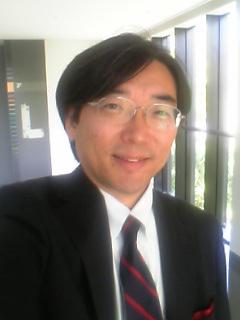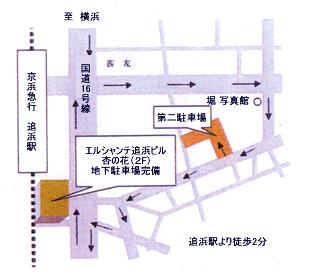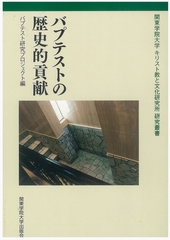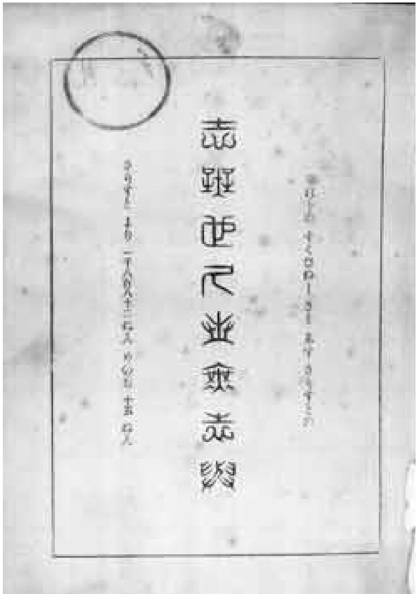Message from the Director
|
The Institute for the Study of Christianity and Culture was founded in 2001 to promote the study of Christianity, the spiritual legacy of Kanto Gakuin's foundation. This institute succeeds the former Institute for the Study of Protestant History which was a part of the Department of Theology. The ISCC has made constant achievements in research and practice since celebrating its opening in the first year of the 21st century.
|
Study Group on
Considerations of Life
|
Aims of the Project:
We are a study group aimed at researching "life" not only in the biological sense of the term, but more broadly, in its total sense.
Research Theme:
We are explored the new field of bioethics, taking up questions about the ways people make value and moral judgments about "life".
Research Staff:
Staff leader:
Activities in 2007
Last year, we carried out our activities as a six-member group, but this year, Dwight Davidson and Chie Kodaka have joined us. Up through last year, we've had the privilege of presenting special sessions at Mr. Omameuda's classes encouraging students to think about the importance of life.
|
The Project of Cross-Cultural Understanding
|
Aims of the Project:
The school motto, "Be a man, serve the world", evidences the Christian character of Kanto Gakuin. This phrase accurately expresses the true meaning of Christian faith - namely, that a true encounter with the absolute happens when a person turns toward another person in service.
Research Theme:
The research theme of the International Understanding and Volunteerism Project is to cultivate a spirit of unity based on Kanto Gakuin's founding vision: "Be a Man, Serve the World".
Research Staff:
Lead staff:
Activities in 2007
Thanks to the support of researchers both inside and outside of Kanto Gakuin, the International Understanding and Volunteerism Research Project was able to complete its work last year. In 2006, we began working with the Akha people of northern Thailand in a project called, "Considerations Regarding the Agricultural Economic Support Model Contributing to the Self-Determinative Economic Development of the Ethnic Minorities of Mountainous Northern Thailand, Using the Akha village, Hoikomu, as a Case Study". In the course of this study, we commissioned project researchers to go to the village and to carry out preliminary local studies using questionnaires and other methods. The detailed results of these studies were published in the Research Center's periodical, Christianity and Culture (no. 5, pp. 69-79). We urge you to review this material.
|
Research Group on
Community Service and Volunteer Activities
|
Aims of the Project:
This research group has been engaged in studying the foundational principles and theories of
community-service and volunteerism education, with emphasis on how those are practically applied
in schools.
Research Theme:
Japan's government is now planning to introduce volunteer service in the school curriculum,
imposing it on students by making it compulsory.
Research Staff:
Activities in 2007
|
The Project of Baptist Study

Welcome to our website.
Christianity and Dependency Research Project
|
Aims of the Project:
One of the greatest challenges facing modern Japan is that we see final-stage symptoms of
"The Dependent Society" within our culture. A large number of disorders and problems emerge as a
result of "dependency," and this threatens to bring our entire society to the edge of a very dangerous
precipice. When we speak about "Dependency," (also referred to as "addiction"), we use language
that was first used in the field of counseling. Most people understand "alcohol dependency." It's an
illness which feeds on the anesthetic and dependency-creating chemical properties of alcohol in
beverages. When large amounts of alcohol are habitually consumed over time, the result is often
emotional and physical collapse.
Research Theme: Our research project has adopted a three-year plan (2007-2009), and our principal research topics will be as follows:
Research Plan:
Plan for Year One (2007):
|
Dr. Tasuku Sakata Study Project
|
Aims of the Project:
This project came about due to the generous bequest of Tasuku Sakata's extensive diary from the
Sakata family.
Research Theme: At present our major themes are, "A Study of the Diaries of Tasuku Sakata" and "Following in the Footsteps of Tasuku Sakata."
Research Staff:
Staff Researchers:
Activities in 2007
In accordance with last year's plan, this year, we traveled to a number of sites in Ashio (in
Tochigi prefecture) to do some study called, "In the Footsteps of Tasuku Sakata." Twelve people
attended and we felt it was a profitable trip.
|
Study Group on Christianity and Mental Climate of Japan
|
Sorry, this article is under construnction.
|
The Resource and Reference Committee
|
About us:
The Resource and Reference Committee has served as an archive of Baptist historical material
since 2001, as part of the Institute for the Study of Christianity and Culture at Kanto Gakuin University.
What we do:
We also document the life and history of the American Baptist missionary who came to serve their mission in Japan.
We look for historical materials that can teach us about their lives, such as:
Members:
The Resource and Reference Committee is run by six members.
Recent Activities (2007-08): Currently we are investigating the original Japanese-language bible translated by Dr Nathan Brown and studying the different edited versions that exist within our collection.
How you can help:
If you hold any information on any historical materials which may be helpful to us, please do not hesitate to contact us: The Resource and Reference Committee, Kanto Gakuin University, 1-50-1 Mutsuura-Higashi, Kanazawa-ku, Yokohama, 236-8501, Japan
.
Contact Us:
The Resource and Reference Committee
|



